The Domestic Church & the Catholic Homeschool
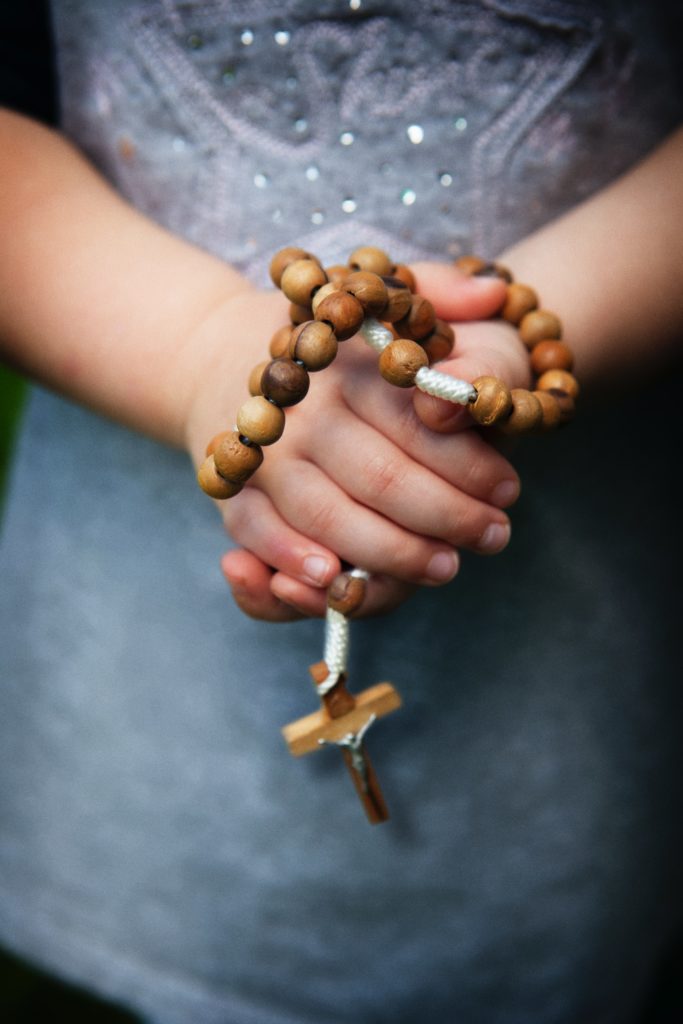
The family is the first school of wisdom.
“Every home is called to become a domestic church in which family life is completely centered on the lordship of Christ and the love of husband and wife mirrors the mystery of Christ’s love for the Church, his Bride.
“The family is the first school of wisdom, a school which trains its members in the practice of those virtues which make for authentic happiness and lasting fulfilment. In God’s plan for the family, the love of husband and wife bears fruit in new life, and finds daily expression in the loving efforts of parents to ensure an integral human and spiritual formation for their children. In the family each person, whether the smallest child or the oldest relative, is valued for himself or herself, and not seen simply as a means to some other end. Here we begin to glimpse something of the essential role of the family as the first building-block of a well-ordered and welcoming society. We also come to appreciate, within the wider community, the duty of the State to support families in their mission of education, to protect the institution of the family and its inherent rights, and to ensure that all families can live and flourish in conditions of dignity.
“The Apostle Paul, writing to the Colossians, speaks instinctively of the family when he wishes to illustrate the virtues which build up the “one body” which is the Church. As “God’s chosen ones, holy and beloved,” we are called to live in harmony and peace with one another, showing above all forbearance and forgiveness, with love as the highest bond of perfection (cf. Col 3:12-14). Just as in the marriage covenant, the love of man and woman is raised by grace to become a sharing in, and an expression of, the love of Christ and the Church (cf. Eph 5:32), so too the family, grounded in that love, is called to be a “domestic church”, a place of faith, of prayer and of loving concern for the true and enduring good of each of its members.” ~ Pope Benedict XVI
What is the Domestic Church?
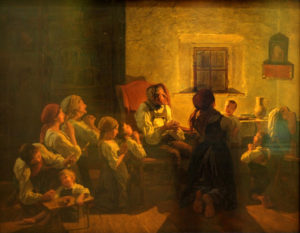
In his book, A Civilization of Love, Carl Anderson writes, “Today, it is increasingly common to speak of the family as the ‘domestic church.’ This is not merely rhetorical. The ideal of the family as a domestic church goes back to the Old Testament. It was stated most simply and eloquently, perhaps by Joshua: ‘As for me and my house, we will serve the Lord.’ It was developed in the New Testament: ‘Husbands, love your wives, as Christ loved the Church and gave himself up for her.'”
In Lumen Gentium 11, Pope Paul IV explains:
“Christian spouses, in virtue of the sacrament of Matrimony, whereby they signify and partake of the mystery of that unity and fruitful love which exists between Christ and HIs Church, help each other to attain to holiness in their married life and in the rearing and education of their children. By reason of their state and rank in life, they have their own special gift among the people of God. From the wedlock of Christians, there comes the family, in which new citizens of human society are born, who by the grace of the Holy Spirit received in baptism are made children of God, thus perpetuating the people of God through the centuries. The family is, so to speak, the domestic church. In it, parents should, by their word and example, be the first preachers of the faith to their children. They should encourage them in the vocation which is proper to each of the, fostering with special care vocation to a sacred state. Fortified by so many and such powerful means of salvation, all the faithful, whatever their condition or state, are called by the Lord, each in his own way, to that perfect holiness whereby the Father Himself is perfect.”
The family is the smallest unit of believers gathered together in Christ. What we do in the home influences not just our families, but the world outside our walls. All that we do begins with God and should be based in prayer and love for God and each other. In our homes, we choose to live our faith fully, exercising our spiritual life and making our home a “little church.”
Pope Francis writes in Amoris Laetitia, no. 315:
“The Lord’s presence dwells in real and concrete families, with all their daily troubles and struggles, joys and hopes. Living in a family makes it hard for us to feign or lie; we cannot hide behind a mask. If that authenticity is inspired by love, then the Lord reigns there, with his joy and his peace. The spirituality of family love is made up of thousands of small but real gestures. In that variety of gifts and encounters which deepen communion, God has his dwelling place. This mutual concern brings together the human and the divine, for it is filled with the love of God.”
And just as we build brick-and-mortar churches and support them through service, so are we called to do the same for our domestic church. We build each other up and offer support and love to advance the Kingdom of Heaven. We are called to evangelize, and there is no better way for us to evangelize each other and the larger culture than to live our faith fully, beginning in the home. This evangelization begins first between husband and wife and then extends to the children, all within the sanctuary of the home.
Pope St. John Paul II wrote in Familiaris Consortio:
“The family has the mission to guard, reveal and communicate love, and this is a living reflection of and a real sharing in God’s love for humanity and the love of Christ the Lord for the Church His bride.”
“Family, become what you are!”
Building Your Domestic Church
Saint John Paul the Great wrote that the “little domestic church, like the greater Church, needs to be constantly and intensely evangelized: hence its duty regarding permanent education in the faith.” Our domestic church is the center of our living faith.
Every family in every Catholic home is the domestic church, where Catholic family life is centered on Christ, formed through love. Pope Benedict XVI explains that “the family is the first school of wisdom.” Learn how to nurture your own domestic church.
adapted from Tools for Building a Domestic Church, USCCB
- Pray together as a family (morning and night prayers, grace before meals, the family Rosary)
- Read scripture together
- Place a crucifix and sacred art in each room of your home
- Create a family altar or icon corner
- Keep and use holy water in your home
- Celebrate the liturgical year and feast days
- Practice generous almsgiving and service through charity
- Go to regular Confession together as a family
- Love each other and your neighbors in thought, words, and deeds
- Discuss and practice virtue
- Talk often about the Father, Son, and Holy Spirit
- Make the worship and love of God primary in your lives
- Learn to sing Catholic hymns together
- Invite fellow Catholic parishioners, clergy, and religious to your home
- Speak well of your priests and the Church
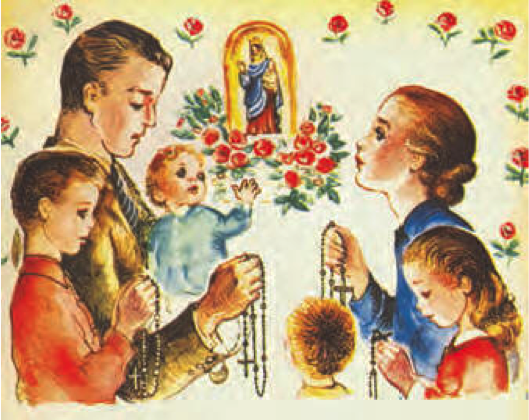
What Catholics need to know about making their homes a domestic church
What does this mean… “Domestic Church”?
The Domestic Church: The Church in the Home — Rediscovering Who We are
Why is the family called the “Domestic Church”?
The Domestic Church–The Church of the Home
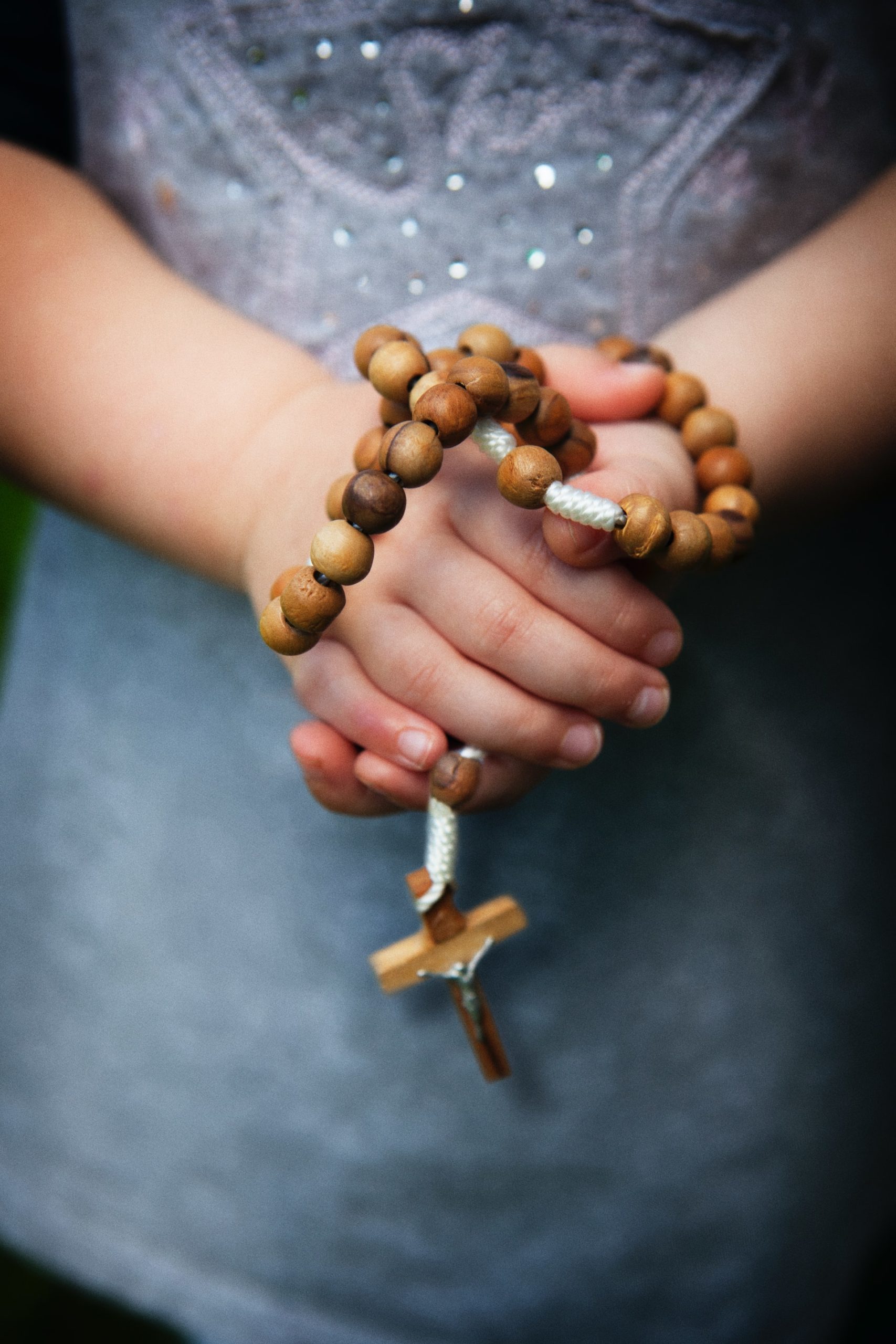
The Domestic Church & the Catholic Homeschool
The family is the first school of wisdom. “Every home is called to become a domestic church in which family life is completely centered on

Catholic Subscription Boxes
Advent Crate, Catholic Family Crate What is a Catholic subscription box? It’s only the neatest thing to happen to your mailbox! Catholic subscription boxes companies
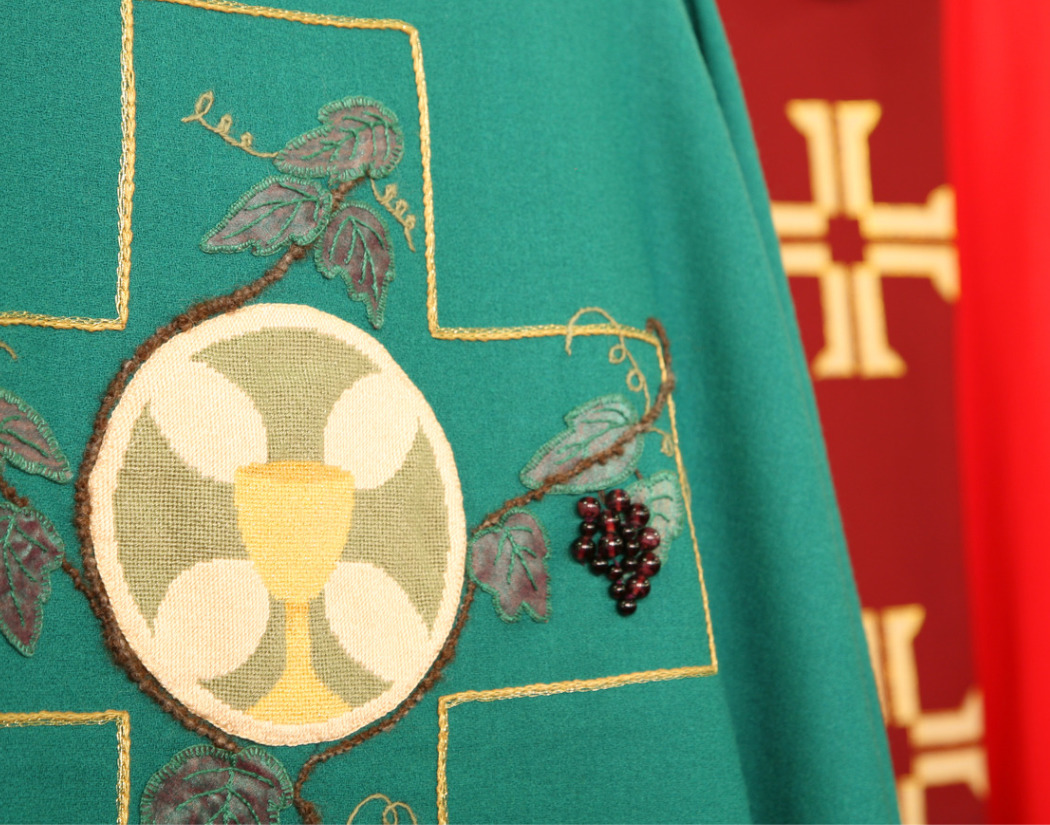
What is the Liturgical Year?
The Catholic liturgical year is the cycle of seasons in the Roman Rite of the Catholic Church. Each year, the cycle is repeated. It determines
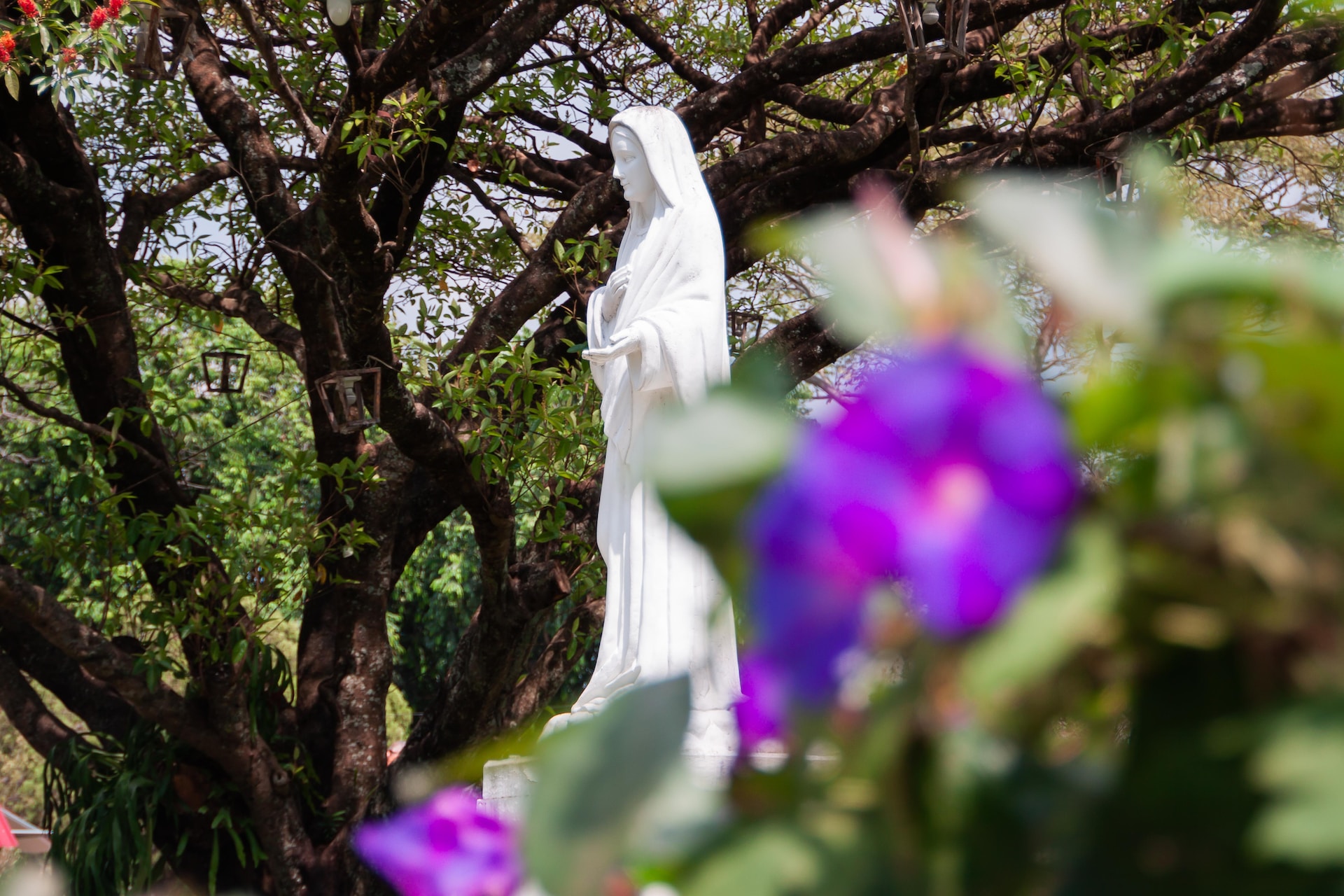
Planting a Mary Garden with Your Children
Planting a Mary Garden with Your Children As May rolls around, we are drawn outdoors and planting a garden is one of those quintessential May
The Domestic Church
-
Prayers for the Domestic Church: A Handbook for Worship in the Home
-
Domestic Monastery
-
Biblical and Theological Foundations of the Family: The Domestic Church
-
The Domestic Church: Room By Room, A Study Guide for Catholic Mothers (New Editi...
-
Raising a Catholic Family Today: Building a Domestic Church A Handbook for Paren...
-
The Domestic Church: Room By Room: A Study Guide for Catholic Mothers
-
Evangelizing Today's Domestic Churches: A Theological and Pastoral Approach...
-
Marian Devotions in the Domestic Church
-
Missionary Parenting: Cultivating the 6 Key Relationships Essential to Your Dome...
-
Advent, Christmas and Epiphany in the Domestic Church: Activities to Celebrate t...











